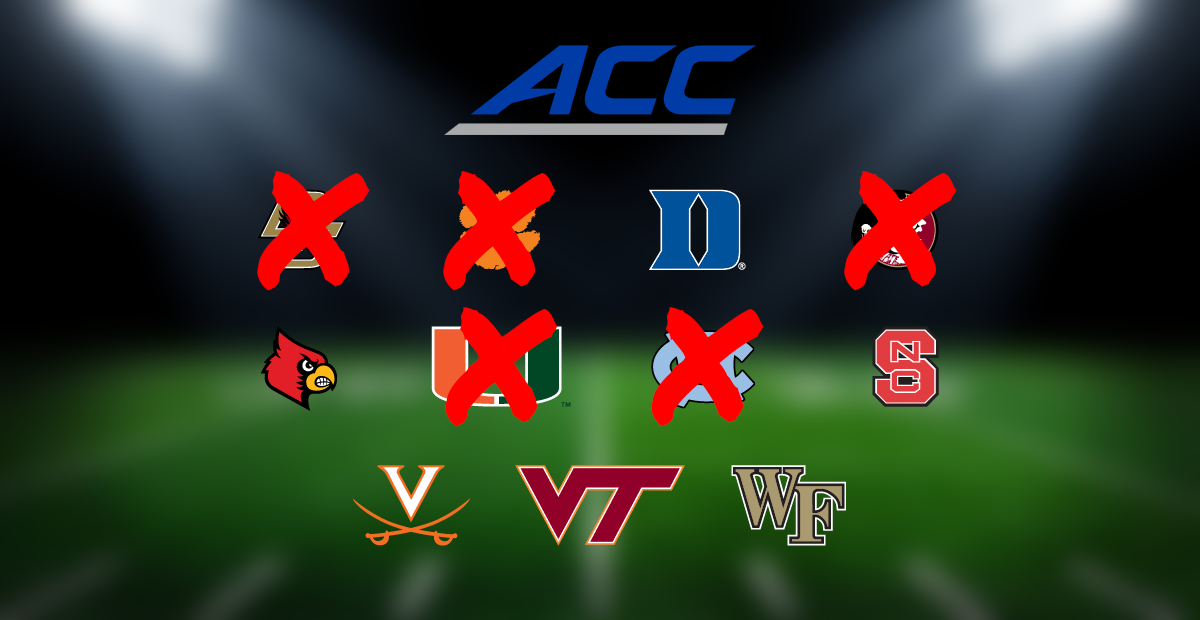ACC Conference realignment has become a prominent topic in college football, with the shifting dynamics of conferences reshaping the sport’s landscape. The recent additions and alterations in the Big Ten and SEC have fueled discussions and raised questions about the potential impact on prominent programs like Clemson Football
Understanding Conference Realignment
Conference realignment refers to the process of teams changing conferences, driven by various factors such as financial gain, competitiveness, and geography. Financial considerations, particularly television revenue, have played a significant role in recent realignment decisions, leading to conference expansions and mergers.
The Potential Impact on Clemson Football

Clemson Football, a highly successful program, could experience significant ramifications from ACC realignment. While the ACC is a respected conference, it is not considered one of the most powerful in college football. As such, Clemson’s chances of contending for national championships could be enhanced by joining a more formidable conference such as the SEC or Big Ten. Additionally, Clemson would likely gain access to a larger share of television revenue in a higher-profile conference.
However, there are inherent risks associated with leaving the ACC. The ACC offers stability, and Clemson’s performance in a more competitive conference is uncertain. Furthermore, departing the ACC prematurely would necessitate a substantial buyout.
Exploring the Pros and Cons of Conference Realignment for Clemson Football
Pros:
- Increased financial revenue: A move to a more powerful conference could provide Clemson with higher television revenue and financial opportunities.
- Better chance of competing for national championships: Joining a more competitive conference would offer Clemson a stronger path to national prominence.
- Enhanced program exposure: Competing in a prestigious conference would increase Clemson’s visibility and exposure on a national scale.
- Expanded recruiting opportunities: Membership in a prominent conference can attract top-tier recruits and bolster the program’s long-term success.
Cons:
- Increased travel costs: Relocating to a new conference may entail greater travel expenses for Clemson and its fans.
- Heightened competition: The move to a more powerful conference would expose Clemson to stronger opponents, posing a challenge to sustaining success.
- Loss of rivalries: Departing the ACC could sever longstanding rivalries, impacting the tradition and regional connections associated with those matchups.
The Future of ACC Conference Realignment
Predicting the trajectory of conference realignment is a challenging endeavor. However, it is highly likely that further realignment will occur in the coming years as conferences seek to maximize profits and competitive advantages. Clemson football, with its remarkable success, will undoubtedly be an enticing prospect for conferences looking to enhance their profiles through strategic realignment.
Preparing for Conference Realignment: Clemson Football’s Strategic Steps
To effectively navigate conference realignment, Clemson Football can take proactive measures to ensure its preparedness:
- Building a strong financial foundation: Clemson must continue to strengthen its financial resources to remain competitive in a major conference. This involves capitalizing on revenue opportunities, securing robust sponsorship deals, and exploring innovative ways to generate funds for program development.
- Enhancing the football program: Clemson should invest in bolstering the overall strength of its football program. This includes recruiting and retaining top coaching talent, maintaining state-of-the-art facilities, and implementing cutting-edge training and player development programs.
- Forging relationships with other major conferences: Clemson Football should actively cultivate relationships with influential stakeholders in other major conferences. Engaging in open dialogues with university administrators, conference officials, and coaches can help establish rapport and potentially create opportunities for future realignment if advantageous.
- Strengthening alumni and fan support: Clemson should prioritize maintaining a strong bond with its passionate fan base and alumni network. By fostering a sense of unity, loyalty, and active engagement, the program can rely on robust support during times of transition.
Conference realignment remains a significant issue in college football, and Clemson football must proactively prepare for its potential implications. By carefully evaluating the landscape, capitalizing on financial opportunities, enhancing the football program, forging strategic relationships, and maintaining strong support systems, Clemson can position itself favorably to succeed in a major conference. As the future unfolds, Clemson Football’s adaptability and forward-thinking approach will prove crucial in navigating the ever-evolving landscape of college football.






